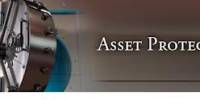A deposit certificate (CD) is a time deposit; it refers to a financial product offered by financial institutions such as banks and credit unions, which allows borrowers to receive a certain amount of interest on their deposits and in exchange, must keep the deposit unused for a certain period of time or risk paying a penalty if it is withdrawn early. CDs are different from savings accounts since the CD has a clear fixed period (often one, three, or six months, or one to five years) and a fixed interest rate, as a rule. To find the best CD prices, shopping around is important since a shockingly wide range is provided by various financial institutions. Like savings accounts, CDs are “money in the bank” insured and therefore practically risk-free up to the local insured deposit limit.
At the point when a client opens a CD record with a bank, he/she contributes a particular measure of cash for a set period. The backer pays revenue at normal spans until the date of development, at which time the record holder gets her unique venture, in addition to the entirety of the interest. Some of the best prices, meanwhile, come from special deals, often with uncommon durations such as 13 or 21 months, rather than more typical terms based on intervals of 3, 6, or 18 months or full-year. A CD with a more limited development time will offer the client a nice return; however, it pays to put resources into a more drawn-out developing CD, which for the most part has a better return.

(Certificate of Deposit)
By charging greater interest on money that is lent out than the interest that is charged to depositors, the bank makes income. It is key to scoring the highest returns to be available to multiple entities and a range of words. Often, CD prices are based on silver stocks and other rare metal stocks. In any case, banks are committed to repaying the investors’ assets at whatever point they pull out it. Accordingly, there is a danger that numerous contributors may pull out their assets at the same time.
Usually, CDs require a minimum deposit and can give larger deposits at higher rates. Some banks allow a variable interest rate and others are able to index the CD to the stock market or other indices. Inflation is almost always tracked by interest rates. To moderate such a danger, banks are held to a specific hold proportion of capital proportion. The proportion demonstrates the amount of the banks’ stores must be held if there should arise an occurrence of unpleasant situations where numerous contributors may wish to pull out their assets simultaneously.
The client who opens a CD can also get hold of a paper certificate, but it is now frequent for a CD to consist truly of a book entry and an item proven in the consumer’s periodic financial institution statements. Unlike most other investments, certificates of deposit offer fixed, safe, and typically federally insured hobby quotes that can often be higher than the rates paid by means of many bank accounts. And CD prices are usually higher if consumers are able for longer periods to sock their money away. Consumers who want a hard copy verifying their purchase of CDs can request a bank’s paper statement or print their own from the online banking service of the financial institution.
The major difference, however, is that when consumers choose to deposit their money on a CD, they can lock in some variables about the funds deposited:
- Interest rate
- Term or length of the deposit
- Principal
- Institution
Although banks assess penalties on CD customers who withdraw their principal deposit before the maturity date, some banks allow the owner of the CD to withdraw interest earned during the lifetime of the CD, although this would reduce earnings. Without such bearings, it is regular for the establishment to turn over the CD consequently; by and by tying up the cash for a while (however the CD holder might have the option to indicate at the time the CD is opened not to turn over the CD). For savers who want to gain more than most deposits, checks, or money market accounts pay, but without taking on the risk or uncertainty of the market, CDs have become a more appealing choice.
Deposit certificates are commonly thought of as one of the best forms of investment. CDs also give a higher yield than most savings accounts or money market accounts, which is useful for those who do not actually need their funds but still want a healthy investment yield. There may be some correlation between CD interest rates and inflation. For instance, in one circumstance loan costs maybe 15% and expansion 15%, and in another circumstance, loan costs maybe 2%, and swelling might be 2%. Despite the fact that CDs offer a better return than bank accounts, there are numerous different ventures and resource classes that offer a better return, including most stocks and different sorts of bonds.
Information Sources:
















